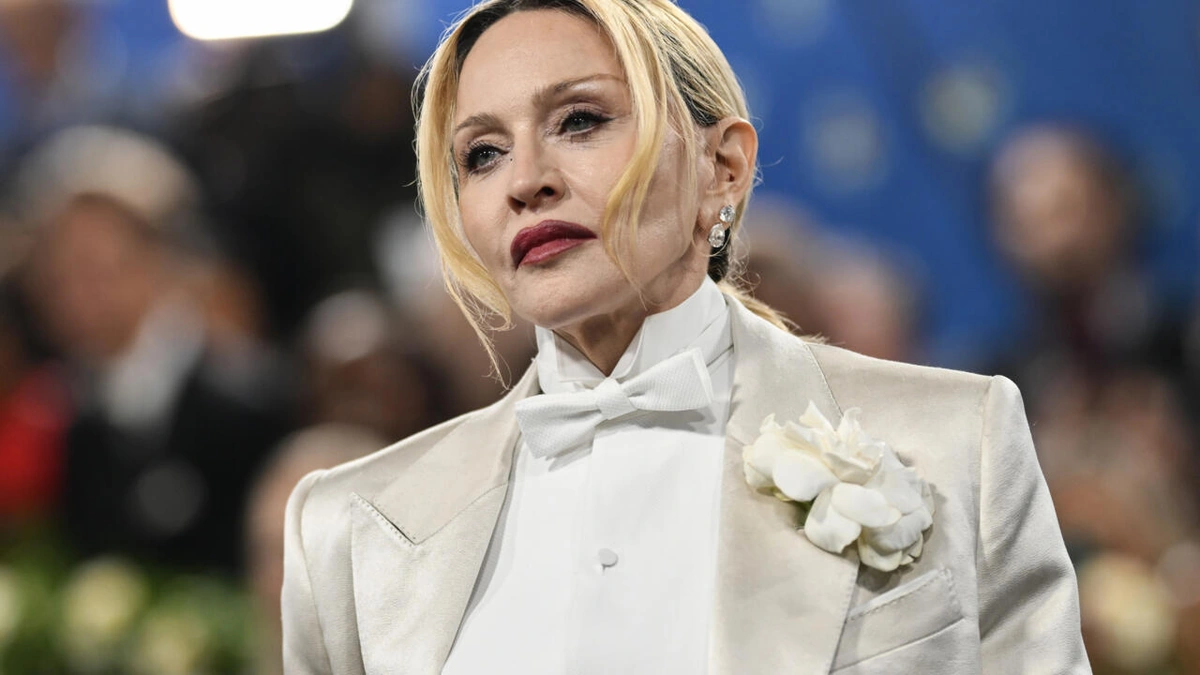Madonna. Just the name conjures up a whirlwind of images: conical bras, boundary-pushing performances, and a relentless reinvention that has spanned decades. But let’s be honest, it’s easy to dismiss her as just another pop star who had her moment. What fascinates me is how she’s managed to stay relevant, controversial, and utterly captivating even now. This isn’t just about nostalgia; it’s about understanding Madonna’s impact and why she continues to influence culture, music, and even our understanding of female empowerment.
The Queen of Reinvention | More Than Just a Gimmick

Madonna’s constant reinvention is often seen as a calculated marketing strategy, and to some extent, it is. But there’s something deeper at play. She’s not just chasing trends; she’s actively shaping them. Her ability to anticipate cultural shifts, to absorb and repurpose diverse influences, is remarkable. From her early days in the 80s embracing the club scene to her later explorations of Kabbalah and world music, Madonna’s musical evolution has always been a reflection of her own personal journey and a commentary on the world around her. She has redefined the role of women in music .
But, this relentless push for reinvention has not always been easy for her. Think back to the criticism surrounding her “Erotica” era. The backlash was intense, fueled by societal discomfort with female sexuality and a desire to keep women in their prescribed roles. Yet, she persisted, pushing the boundaries of what was acceptable and paving the way for future generations of female artists. As she moved toward more pop sounds with the album “Ray of Light,” she proved she could still evolve.
A Cultural Mirror | Reflecting Our Anxieties and Aspirations
Madonna isn’t just a performer; she’s a cultural mirror, reflecting our anxieties, our aspirations, and our ever-changing values. She’s tackled controversial topics head-on, from sexuality and religion to gender roles and political activism. Her willingness to challenge the status quo, to provoke dialogue, has made her a lightning rod for criticism, but it’s also cemented her status as a cultural icon. In fact, her role as a cultural figure is highlighted by numerous academic and popular sources –check out her Wikipedia page.
What I initially thought was just theatrics on stage really changed when I began to watch interviews with her and examine her writing.
The Businesswoman | Taking Control of Her Narrative
In a male-dominated industry, Madonna has consistently fought for control of her career and her narrative. She’s not just a performer; she’s a businesswoman, a producer, and a director. She founded her own record label, Maverick Records, and has been actively involved in every aspect of her career, from songwriting and production to marketing and distribution. A common mistake I see people make is thinking that she’s simply a performer being told what to do. Nope. She owns it all. She owns her voice, her image, and her business. This entrepreneurial spirit has not only empowered her but has also inspired countless other women in the entertainment industry. This is how she can influence pop culture .
And , it’s not just about the money. It’s about creative control and making sure her vision is realized. Let me rephrase that for clarity: she’s not just trying to get rich; she’s ensuring her art remains authentic.
The Enduring Legacy | Inspiring Future Generations
Madonna’s influence can be seen in countless artists who have followed in her footsteps, from Lady Gaga and Beyoncé to Miley Cyrus and Billie Eilish. She’s paved the way for female performers to be more assertive, more experimental, and more unapologetically themselves. Her impact extends beyond music, influencing fashion, dance, and visual arts. This is why her legacycontinues to grow with each passing year. Her influence on fashion trends cannot be overstated.
What fascinates me is the idea that Madonna’s longevity proves that a pop star can be culturally significant and deeply personal at the same time.
Madonna Today | Still Pushing Boundaries
Even today, as she navigates ageism and societal expectations, Madonna’s commitment to her art remains unwavering. She continues to tour, record new music, and use her platform to speak out on social and political issues. What I see is that Madonna, at the end of the day, understands one thing very clearly: that to remain relevant, one must never stop evolving. The one thing you absolutely must recognize is that she isn’t slowing down.
Here’s the thing: Madonna’s impact is undeniable. She’s more than just a pop star; she’s a cultural icon, a businesswoman, and a fearless advocate for self-expression. Her journey is a testament to the power of reinvention, the importance of challenging the status quo, and the enduring legacy of an artist who dared to be different. So, the next time you hear a Madonna song, take a moment to appreciate the depth and complexity of this extraordinary woman. Also, for a slightly different genre, you might be interested in this article.
FAQ About Madonna’s Influence
How has Madonna influenced other artists?
Madonna has paved the way for female performers to be more assertive, experimental, and unapologetically themselves. Her influence can be seen in countless artists across music, fashion, and visual arts.
Why is Madonna considered a cultural icon?
Madonna is considered a cultural icon due to her willingness to challenge the status quo, tackle controversial topics, and consistently reinvent herself throughout her career.
What is Madonna’s biggest accomplishment?
Defining one “biggest” accomplishment is difficult, but Madonna’s enduring legacy as a businesswoman and fearless advocate for self-expression is certainly a defining achievement.
How has Madonna impacted the music industry?
Madonna has challenged gender norms, pushed boundaries, and demonstrated the power of female artists to control their careers and creative output.
What makes Madonna’s music unique?
Madonna’s music is unique due to its eclectic mix of genres, its exploration of controversial themes, and its ability to reflect and shape cultural trends.




